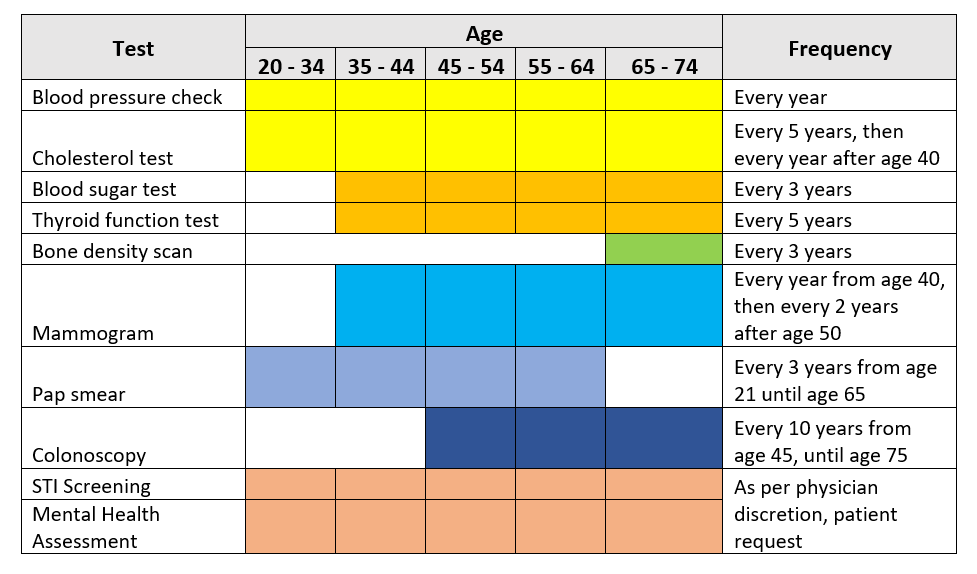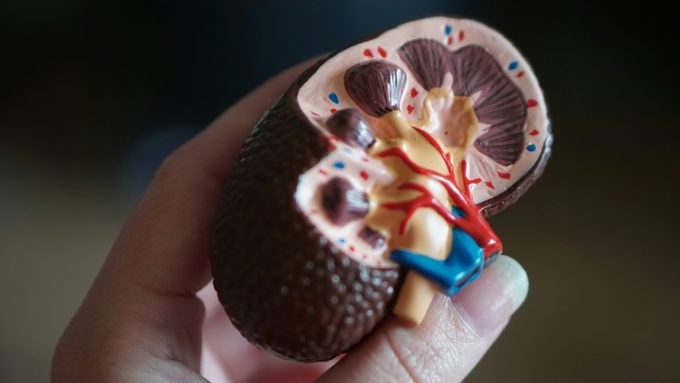“Prevention is the best medicine” is an old adage familiar to many. It is a philosophy that advocates for a healthy lifestyle, with various guidelines regarding diet, exercise, etc. Over the past few decades, the exponential increase in medical knowledge as well as the ongoing development of newer diagnostic tests have resulted in a number of health screening tests being developed.
These tests are essential for detecting potential health issues early, often before symptoms appear. Early detection increases the chances of successful treatment and can prevent conditions from worsening. Screenings can identify risks for chronic diseases like cancer, diabetes, and heart disease, empowering you to make proactive lifestyle changes. They also provide peace of mind, ensuring you stay informed about your health. Regular screenings are a key part of preventive care, helping you live a longer, healthier life.
In this article, we will explore the following 10 Essential Screening Tests that women should have.

1. Blood pressure check
This is used to screen for hypertension, which if not well controlled can lead to heart disease, stroke and kidney problems. Risk factors include obesity, diabetes and a family history of hypertension. While it is more common for hypertension to occur later in life, blood pressure checks are recommended at least once a year for all adults. Accurate measurement requires appropriate preparation and proper technique.
2. Cholesterol test
Cholesterol is an essential substance in the functioning of the body. However, elevated levels can lead to an increased risk of heart disease. Starting from age 20 every person should have their cholesterol checked every 5 years. After age 40, it should be checked yearly. It is important to note that especially after menopause, the hormonal changes that occur necessitate yearly checks. This is a blood test that ideally requires overnight fasting.
3. Blood sugar test
This is used to screen for diabetes and prediabetes. There are a few possibilities here including a random blood sugar test, fasting blood sugar and an HbA1C. The latter gives an idea of sugar control over that past three months. Screening usually starts at age 35 and then every 3 years. If a person is obese, sedentary and/or has a family history of diabetes, screening should be initiated earlier.
4. Thyroid function test
The thyroid gland (located in the front of the neck) produces thyroid hormones, which affect the body’s metabolism. Consequently, multiple body systems are adversely affected when there is either too little or too much thyroid hormones. Thyroid disease is at least 5 times more common in women than in men. Screening usually starts at age 35 and then every 5 years. This test requires a blood sample to be taken. If a person has symptoms like neck swelling, fatigue, rapid weight changes, irregular periods, etc. screening should be initiated earlier.
5. Bone density scan
Thinning of bones (known as osteoporosis) increases the risk of fractures. A bone density scan is a special type of x-ray study that measures the density of your bones. In women who are going through menopause and have risk factors such as low weight, family history, smoking, etc. screening starts at age 50. Otherwise, the general guideline is to start screening at age 65 and then every 3 years.
6. Mammogram
Breast cancer is the most common cancer among women worldwide. Monthly self-breast exams should be done in women of all ages. This involves visual inspecting and physically feeling the breasts for changes to the skin and nipples including presence of lumps, dimples, redness, discharge, etc. A yearly breast exam should also be done by a physician.
Additionally, a mammogram, which is a special type of x-ray study is recommended starting from age 40, then every year. From age 50 to 74, mammograms are done every 2 years.
7. Pap smear
This test is used to screen for cervical cancer which, because of it’s location in body (deep in the vagina) and lack of symptoms, is often detected in late stages (when there was no prior screening). Pap smears should be done starting at age 21, then every 3 years. From age 30 to 65, if additional simultaneous testing is done for HPV, then screening can be done every 5 years. Women over 65 with a history of normal results may discontinue testing.
In Guyana, another low-cost option widely available in the healthcare system is VIA testing. Also available is vaccination against HPV (human papilloma virus), which is a causative agent for cervical cancer.
8. Colonoscopy
Colon cancer is the second most common cancer in women worldwide. Screening entails getting a colonoscopy done every 10 years starting from age 45 and going up to age 75. Colonoscopy entails inserting a special tube with a camera into the colon through the anus. A low-cost option is sending a stool sample to check for blood, which is to be done yearly starting at age 45. If there is a family history, screening should be initiated earlier.
9. STI Screening
For all sexually active individuals, consideration should be given to do screening for sexually transmitted diseases (STIs). Apart from HIV, STIs include syphilis, herpes, gonorrhoea, chlamydia, etc. The frequency of screening would depend on several factors, including new/ multiple partners.
10. Mental Health Assessment
This is a generally ignored area of screening. Changes in mental health may be the consequence of physical disease as in the case of stroke, heart attack, and thyroid disorders. Additionally, mental health challenges such as depression can also result in physical symptoms. Both of these relationships result in a decreased quality of life. Screening of conditions such as depression, dementia, etc. is an opportunity not to be missed during medical checkups. The specific condition screened for may vary with age.
Health screenings are powerful tools for prevention and early detection. By following age-appropriate guidelines for these 10 essential tests, women can take proactive steps toward long-term wellness. Always discuss your personal risk factors and screening schedule with your healthcare provider, as customization is key to optimal health.













